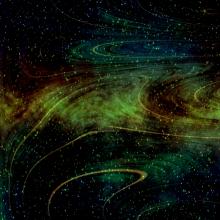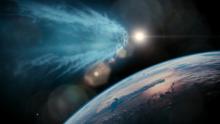astronomer

Twelve Catholic priests and brothers live, work, and pray at the Vatican Observatory as they explore some of the universe’s biggest scientific questions, from the Big Bang theory to the structure of meteorites and stars.
“The observatory exists to show the world that the Catholic Church supports science,” says Brother Guy Consolmagno, an astronomer from Detroit who is also the observatory’s director.

Scientifically speaking, gravitational waves are a whole new way of experiencing our universe — who knows what we’ll discover now that we can listen AND see? And I’m a Christian as well as an astronomer, so I can’t help but consider what it means for my faith when the frontiers of science are advanced in such a fundamental way.
Many Christians find this advance threatening. They reason as follows: If science is explaining more and more of the world, then there is less and less room in the picture for God. Creationism is the most well known example of this logic. A creationist finds the theory of evolution insidious because, to their way of thinking, if we accept the idea that life emerged from the primordial soup and evolved into humans, how can we claim to be created by a divine Maker?

Many viewers may be hoping that Cosmos: A Spacetime Odyssey lives up to the original series created by astronomer Carl Sagan 35 years ago.
But no one will watch the program, airing Sunday on Fox, with greater anticipation than nonbelievers — atheists, agnostics, humanists, and other “nones.”
Among this group, many credit Sagan and the original Cosmos with instilling in them skepticism of the supernatural and a sense of wonder about the universe. Both, they say, encouraged their rejection of institutional religion.
Humanists are especially eager. They claim Sagan as their own, and see in the Cosmos series — a multipart journey to the outer reaches of our universe — and in his dozen books a vibrant strain of their own philosophy. That philosophy favors reason over religion and holds human beings as both good and responsible for the Earth’s plight.